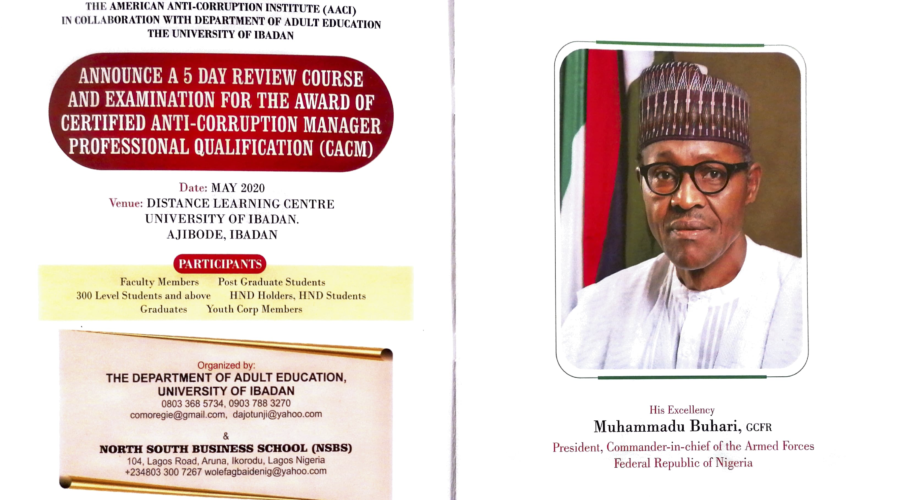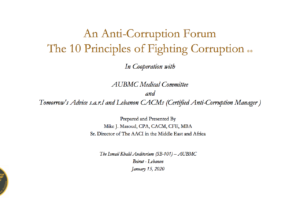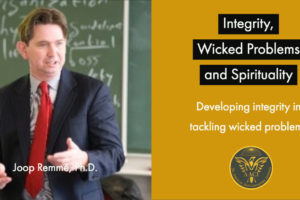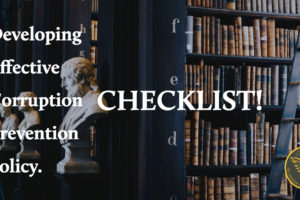March 4, 2020
On February 26, 2020, The American Anti-Corruption Institute (AACI) launched the implementation phase of its Memorandum of Understanding (MOU) with the University of Ibadan (UI) at the UI’s premises. The AACI and UI announced the launch during a two-day national workshop under the theme: Corruption, Good Governance: Challenges and Way Forward.
The University of Ibadan, Ibadan, Nigeria and The American Anti-Corruption Institute (AACI) signed a three years Memorandum of Understanding (MOU) to implement “The Initiative of The AACI for Universities in The Middle East and Africa: Professional Certification for Students to Prevent Corruption.”
The University of Ibadan is the first African university that offers the Certified Anti-Corruption Manager (CACM) and the Certified Anti-Corruption Felloe (CACF) anti-corruption certification programs to its students and faculty. The leadership of the University of Ibadan represented by Professor Abel Idowu Olayinka, Ph.D., Vice-Chancellor, University of Ibadan shows a firm commitment to equipping its students and faculty members with the cutting-edge anti-corruption knowledge and skills. The AACI and the University of Ibadan believe that youth are at the core of any prudent national anti-corruption strategy.
Mr. Burk Files, President of The AACI, presents a trophy to the representative of the Governor of Oyo state in Nigeria, his excellency Engineer Seyi Makinde. It was a part of the launching of The AACI’s Initiative at UI. (video below)
The University of Ibadan
Established in 1948, the University of Ibadan, UI as it is fondly referred to, is the first University in Nigeria. Until 1962 when it became a full-fledged independent University, it was a College of the University of London in a special relationship scheme. The University, which took off with academic programmes in Arts, Science and Medicine, is now a comprehensive citadel of learning with academic programmes in sixteen Faculties namely, Arts, Science, Basic Medical Sciences, Clinical Sciences, Agriculture, the Social Sciences, Education, Veterinary Medicine, Pharmacy, Technology, Law, Public Health, Dentistry, Economics, Renewable Natural Resources and Environmental Design and Management. The Faculties of the Basic Medical Sciences, Clinical Sciences, Public Health and Dentistry are organised as a College of Medicine. The University has other academic units among which are: Institute of Child Health, Institute of Education, Institute of African Studies, Centre for Child Adolescent and Mental Health, Centre for Educational Media Resource Studies, African Regional Centre for Information Science (ARCIS), Centre for Peace and Conflict Studies (CEPACS), Centre for Petroleum, Energy, Economics and Law (CPEEL), Centre for Sustainable Development (CESDEV), and Centre for Entrepreneurship and Innovation (CEI),Institute for Advanced Medical Research and Training (IAMRAT), Centre for Drug Discovery, Development & Production (CDDDP), Centre for Control & Prevention of Zoonosis (CCPZ). A new National Institute for Maternal Child & Neonatal Health (NIMCNH) & Institute for Infectious Diseases are under construction. A new School of Business (UISB) is expected to take off later this year. The University, as part of efforts to fulfil a God-given mandate of promoting Nigeria’s development, established a Research Foundation (UIRF). In response to emerging threats to peace and peaceful co-existence in Africa, the University established the Institute for Peace and Strategic Studies (IPSS) to provide actionable studies and solutions.
The University of Ibadan Postgraduate School is, well acknowledged within and outside the country as one of the largest in Africa and the flagship of Postgraduate Education in Nigeria as it produces the much required human resources for the entire Nigerian University system, the Nigerian public and private sectors and beyond. The Postgraduate School enrolment takes about 50% of the entire student enrolment. University of Ibadan produces an average of 3,000 Masters & 250 Ph.Ds every year. The University currently hosts the Pan African University Life & Earth Sciences Institute on behalf of the West African Subregion. This is an initiative of the African Union. The programme is in its 2nd year and has 97 students from all over Africa. The main thrust of the University for the 21st century is to be world-class institution for academic excellence geared towards meeting societal needs. Today, the University is consistently ranked among the prestigious Universities in the world. (Read more)






















































